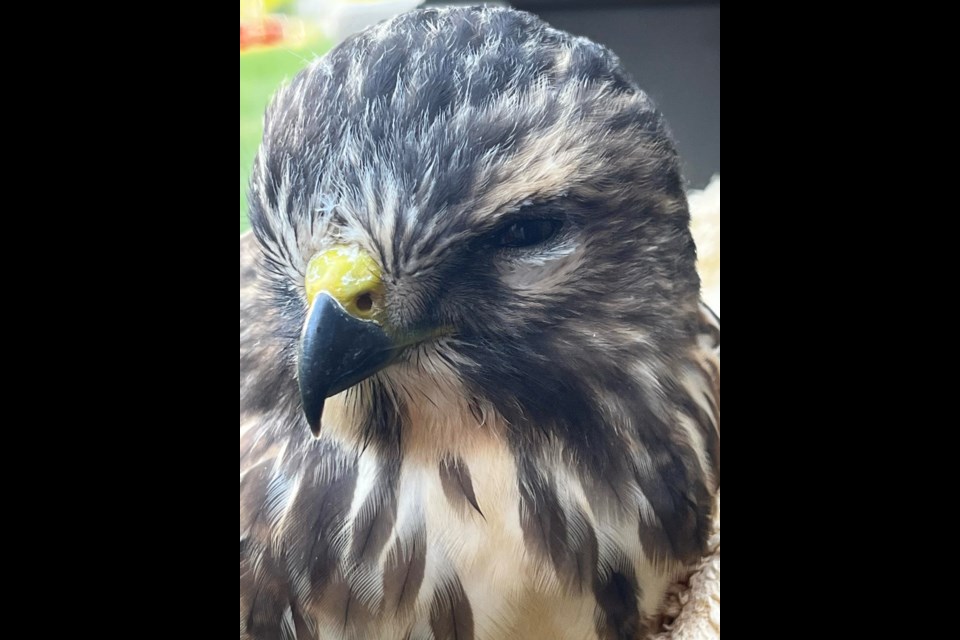THUNDER BAY— From tiny woodpeckers to broad-winged hawks, birds in the city and the surrounding district are dropping like flies.
Jenn Salo, executive director of Thunderbird Wildlife Rescue, says the cause is currently unknown, but is likely to be West Nile Virus.
“Everything's dying, everything's seizing, it's not a good situation at all,” she said.
“Generally, it's West Nile virus. I see a lot of it every year.”
Salo said the blood-borne virus is around every year, but this year is particularly bad.
“I have three sick birds with suspected West Nile in care right now, and I lost two broad-winged hawks this weekend to the virus; they were just too far gone and too emaciated to recover,” she said.
“One of the little broad-winged hawks that came in this weekend, he was just crawling with what are called louse flies. They look like house flies, but with gangly legs and with the piercing mouth parts of a deer fly or horse fly,” she said.
Another possibility is bird flu, or avian influenza, is affecting the birds, Salo said.
“It's nerve-wracking for me being on the front lines basically of the wildlife diseases and hoping that it's West Nile Virus and that it's not contagious as opposed to bird flu and it being crazy contagious,” she said.
“Mammals can get the bird flu from eating infected carcasses, and last year we did have a skunk that tested positive in the city.”
Another danger that the avian rescue centre is facing is parasites, Salo said.
“I have to be so extremely careful with these wild birds and the parasites that they do have, so that they don't transfer to the birds that I do have in care or my own personal birds,” she said.
Salo additionally mentioned that community members should not handle wildlife, noting that parasites and disease can spread to humans and domesticated household animals.
“They don't realize that these things are crawling with parasites, both external and internal.”
Treatment for the avian virus and parasites is mostly a waiting game, Salo said.
“We have been using an anti-parasitic protocol right off the hop with these birds, that's the first step, and then just trying to support them through the fever.”
While caring for the sick birds, Salo said the virus affects all birds differently.
“It's all individual, some of these birds have just mild symptoms, some birds go blind from it, some birds can survive the initial fever and be OK and come out of it,” she said.
While the birds usually recover from the virus, Salo said the long-term effects can be heartbreaking to see.
“But what this virus does to the birds that survived the initial fever is that they'll start dropping weird feathers because the blood supply to the feathers was affected during the fever,” Salo said.
Salo said this year is particularly worse for the avian virus, and that she has extended bio-security measures to include her own home.
“Last year didn't seem too bad for West Nile, but this year it's been brutal for sure… I've had to put a cap on things right now because I cannot risk taking in any more sick birds,” she said.
While the virus can be startling to some community members, Salo said most domestic birds will not be affected by the West Nile Virus.
“I would honestly just be watching for lethargic acting birds,” she said.
“I haven't seen too many livestock animals with it, though, like with that being said, I haven't had any of my friends saying there's been massive die-offs or anything, all my chickens have been fine for the most part.”
Community members who find dead birds of any kind are encouraged to wrap them in a garbage bag and mail the birds free of charge to the Canadian Wildlife Health Corporation, Salo said.
“I want people to observe behaviours. If it's a large game animal or a fur-bearing animal, then they have to contact the MNR tips line if they see something acting strangely, injured or sick. When it comes to birds of prey, they can contact me directly,” she said.
Currently, the rehab centre is in need of blankets, towels, sheets, cleaning supplies such as contractor garbage bags, industrial Zep cleaner spray, and properly stored meats.
Community members can email the rescue for more information and donations.
